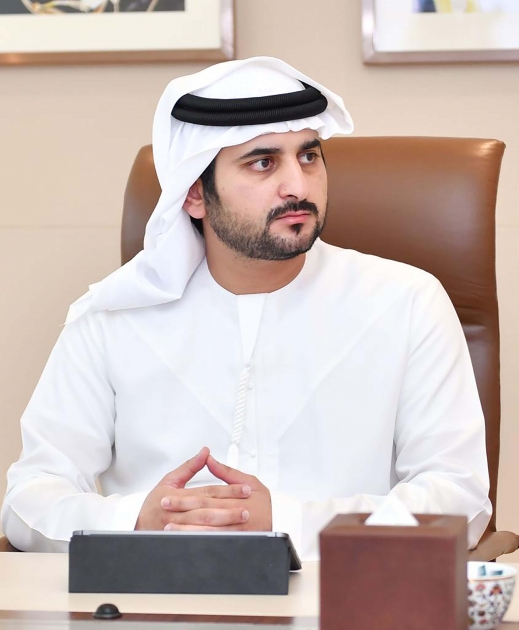
Maktoum bin Mohammed: Rapid global changes require designing fiscal policies that meet needs of national economies
Today, the UAE Ministry of Finance concluded the Eighth Arab Fiscal Forum, organised in partnership with the Arab Monetary Fund and the International Monetary Fund, which was held on the sidelines of the World Governments Summit 2024 in Dubai, under the theme of “Shaping Future Governments” from 12th to 14th February.
The participants adopted a set of recommendations on the necessity of continuing efforts to expand the fiscal space, achieving a balance between enhancing public revenues and sustaining public debt. They confirmed the necessity of maintaining efforts to combat climate change to preserve resources while strengthening international cooperation efforts to mobilise more financial resources directed to Arab countries to reduce the climate financing gap.
Moreover, the participants agreed on the need to strengthen social safety nets and minimise the direct support mechanisms that are most expensive and least effective. They stressed on the importance of having a medium-term framework for public finances and mitigating their risks in a way that enhances investor and market confidence. This will help in benefiting from artificial intelligence opportunities to support digital economy activities, enhance digital financial services, as well as boost the efficiency of the digital infrastructure and governance in public institutions.
H.H. Sheikh Maktoum bin Mohammed bin Rashid Al Maktoum, First Deputy Ruler of Dubai, Deputy Prime Minister and Minister of Finance, said, “Rapid global changes require designing fiscal policies that meet the needs of national economies. This is at the core of our priorities and aligns with the discussions taking place at the Forum.”
Sheikh Maktoum bin Mohammed bin Rashid highlighted that the Forum’s sessions addressed various topics that are at the forefront of UAE’s strategic priorities, including the future of fiscality, the application of sustainable fiscal policies to foster financial empowerment, trust and transparency, shaping the future, sustainable development, innovation, boosting economic growth, and fostering competitive business environments.
He praised collaborative efforts that work towards strengthening Arab cooperation to overcome regional financial and economic challenges, ensuring sustainable growth and continued social well-being across the Arab world.
Mohamed Hadi Al Hussaini, Minister of State for Financial Affairs, inaugurated the eighth Arab Fiscal Forum, attended by Kristalina Georgieva, Managing Director of the International Monetary Fund; Dr. Fahad M. Alturki, Director-General and Chairman of the Board of Executive Directors of the Arab Monetary Fund; Dr. Abdulhamid Alkhalifa, Director-General of the OPEC Fund for International Development; along with Finance Ministers and Central Bank Governors in Arab countries, presidents and managers of regional and international financial institutions, and 100 participants from senior officials and specialists in regional and international institutions.
In his speech, Mohamed Al Hussaini conveyed the greetings of His Highness Sheikh Mohammed bin Rashid Al Maktoum, Vice President, Prime Minister and Ruler of Dubai, confirming His Highness’s keenness and generous patronage of the forum in its eighth edition. Al Hussaini also conveyed the greetings of h.H. Sheikh Maktoum bin Mohammed bin Rashid Al Maktoum, and his appreciation for the recommendations that enhance the ways of joint Arab work and contribute to addressing the financial and economic challenges faced by the Arab region, ensuring the sustainability of growth and social welfare in our Arab countries.
Al Hussaini said, “The UAE is proud to host this distinguished forum, which includes a selection of decision-makers and experts, which has become a platform for constructive dialogue on financial and economic issues, and comes at a time when the countries of the region face a series of challenges, which must be confronted and addressed in a way that ensures sustainable growth and social welfare. When we look closely at the macroeconomic conditions in the Arab region, we realise the complex interplay of factors that shape the current economic landscape, where the region faces significant challenges, especially vulnerabilities related to debt and stringent financing conditions. These issues are not just economic figures and data, but they reflect the earnest pursuit of the region's peoples and their aspiration towards prosperity.”
He added, “However, challenges create opportunities at a time when the Arab region stands at a crossroads, preparing for a new phase of growth that necessitates a set of structural reforms designed to stimulate development in an era characterised by tightening fiscal and monetary policies. Therefore, our mission is to formulate policies that not only stabilise economies but also lay the foundation for sustainable and inclusive growth.”
He continued, “One outstanding example of proactive economic management is the successful reform of energy support. By reallocating resources more efficiently, we not only bolster a more sustainable energy sector but also free up fiscal space for vital investments in infrastructure and human capital. Nevertheless, these steps must be taken with a high awareness of the social dimensions of these reforms, as steering our economies towards efficiency and sustainability requires a delicate balance between economic wisdom and social responsibility in the Arab region.”
Al Hussaini pointed out that several promising methodologies are emerging, most notably the approach of utilising the public sector balance sheet to generate value from public assets. This strategy capitalises on state-owned assets to maximise their economic return and transform them from dormant entities into active contributors to national wealth.
He said, “While the future is fraught with challenges, it is also filled with opportunities. I am confident that the discussions and strategies formulated in this forum will serve as a beacon of hope and a roadmap for a prosperous future. I hope the outcomes will herald a new era of economic resilience and growth in the Arab region.”
Dr. Fahad M. Alturki expressed his gratitude to the UAE, the headquarter country of the Arab Monetary Fund, and praised the cooperation of the UAE Ministry of Finance in organising the forum, and the support provided by the authorities in the country to the Arab Monetary Fund. He also lauded the efforts of Arab authorities to enhance economic and financial stability, as well as the opportunities for comprehensive and sustainable growth.
Dr. Alturki highlighted the importance of the Arab Fiscal Forum as an opportunity to enhance knowledge and expertise exchange between Arab countries to discuss fiscal policy challenges amidst current economic and financial developments. He noted that as the Arab Monetary Fund approaches the celebration of its 50th anniversary, it seeks to increase the volume of its resources available for lending, in light of the increasing financing needs of its member states.
He pointed out that the tightening of monetary policy during the last period has impacted the debt challenge and its effects on growth and the sustainability of public debt, and in some cases it affected the confidence of investors in economic stability. He noted the strategic shift in managing government resources through the balance sheet-based approach to maximise the return on public assets.
The Eighth Arab Fiscal Forum included four dialogue sessions – Macroeconomic Developments and Prospects, Successful Energy Subsidy Reforms and Targeted Social Safety Nets, A Balance Sheet Approach for Generating Value from Public Assets, and Generating Revenue through Tax Administration Reforms.
Upon the conclusion of the Eighth Arab Fiscal Forum, a ministerial roundtable was organised, with the participation of Arab Finance Ministers, Vitor Gaspar, Director of the Fiscal Affairs Department at the International Monetary Fund, and Dr. Fahad M. Alturki, Director-General and Chairman of the Board of the Arab Monetary Fund.




























